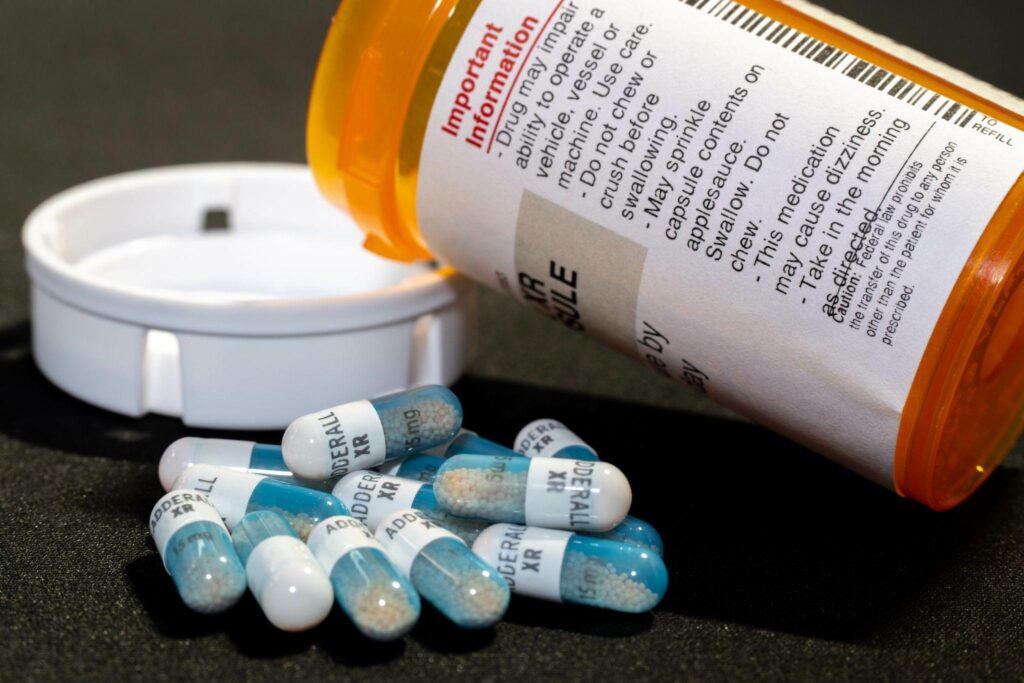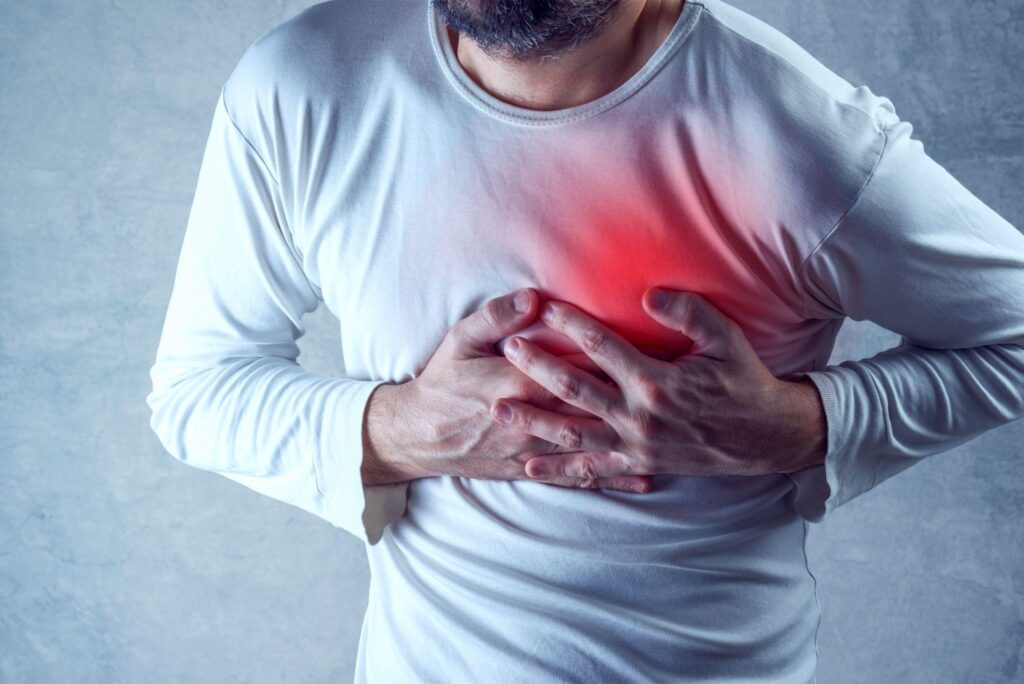Catch the Signs and Symptoms: Amphetamine Use
Amphetamines—commonly referred to as “speed” on the street—are synthetically produced stimulant drugs that are commonly used to treat adults and children with Attention Deficit Hyperactivity Disorder (ADHD).
The following are examples of commonly prescribed amphetamine medications:
- Adderall (amphetamine)
- Ritalin (methylphenidate)
- Concerta (methylphenidate)
- Focalin (dexmethylphenidate)
- Dexedrine (dextroamphetamine)
- Vyvanse (lisdexamfetamine dimesylate).
For individuals who genuinely have ADHD, the stimulant medication helps key areas of their brains function at a higher intensity, making it easier to think and behave in a normal, productive manner. In non-ADHD brains, however, this boosting effect can create an intense, energetic high.

If a person’s diagnosis is accurate and the dose is appropriate, the risk of addiction to amphetamine medicines is practically zero. If the diagnosis is off or the dosage is too high, however, these powerful stimulants can be highly addictive. This important distinction is part of the reason doctors should perform significant cognitive testing before officially diagnosing a patient with ADHD.
Amphetamine misuse often stems from a desire for super-human productivity or a greater sense of control. Illicit use has long been a problem on college campuses, where students abuse the drugs to fuel late-night cram sessions and keep up with overly ambitious academic goals. For others, the high of amphetamines might simply offer a false sense of comfort. Whatever the case, amphetamine addiction can come on very quickly and hit just as hard.
How do you know if a friend or loved one suffers from an addiction to amphetamines? You may want to speak with a substance abuse counselor or mental health professional if you notice the following telltale speed symptoms.
Major Signs of Amphetamine Abuse
Amphetamine drugs can have profound effects on the central nervous system and other areas of the body. Here are key warning signs to be alert to if you’re worried about a loved one’s potential addiction to amphetamines:
The Emergence of Physical Symptoms

Amphetamine abuse, like any addiction, often leads to a decline in the individual’s physical health over time. Unlike some other illicit drugs, amphetamines may not produce immediately noticeable changes in a person’s appearance. However, those close to the individual might observe subtle shifts that hint at abuse.
Symptoms of amphetamine abuse to be aware of include high blood pressure, elevated body temperature, dry mouth, the onset of new or unexplained acne, rapid breathing and heart rate, dilated pupils, insomnia and persistent sleeplessness, diminished appetite or weight loss, and a surge in energy levels, allowing the individual to stay awake longer or engage in physical activity more intensively.
These changes, though less overt, are significant indicators of the detrimental impact of amphetamine use on physical health.
Unusual Changes in Behavior
Some of the most noticeable symptoms of amphetamine abuse are behavioral, manifesting as intense focus, a significant boost in energy, and a noticeable “high” affect, accompanied by various uncharacteristic behaviors.
These changes may include an increase in aggression, irritability, paranoia, anxiety, and experiencing hallucinations. Individuals may also exhibit sudden mood swings, heightened impulsivity, and an inclination toward risk-taking, alongside alterations in their usual sexual behaviors.
Financial behaviors can shift, too, with an increased tendency to spend more money and make major purchases impulsively. There’s often a disregard for safety, with a participation in riskier activities than typically observed, and an overconfidence where individuals may act as though they are “bulletproof.”
If your loved one claims to be taking amphetamines for ADHD treatment as prescribed by a doctor, it’s crucial to critically assess their behavior. While starting ADHD treatment can lead to behavioral changes, these should normalize activity levels rather than induce a manic or high state.
If you confirm that your loved one has a legitimately given prescription but their behavior still concerns you, encouraging them to reevaluate their dosage or diagnosis with their healthcare provider(s) could be beneficial. This proactive approach ensures that their treatment aligns with their health problems and needs without exacerbating or introducing new issues.
Neglecting Obligations

As the substance increasingly consumes their time, individuals with addiction find it challenging to maintain routines that were once a regular aspect of their daily lives. As they gravitate toward the companionship of others struggling with addiction, they alienate themselves from positive and loving relationships. As the substance alters the chemistry of their brain and impairs their cognitive functions, they struggle more with completing simple tasks and recalling their responsibilities.
If your loved one begins to struggle at work, overlooking significant events and meetings, missing necessary bill payments, or making less and less effort to care for themselves and their family, these could be warning signs of amphetamine addiction.
Withdrawal Symptoms
Withdrawal symptoms are a common consequence of discontinuing the use of any physically addictive drug, including amphetamines. When an individual stops taking amphetamines, their body, having grown accustomed to a certain dosage over time, finds its systems, especially the central nervous system, struggling to operate as usual.

This adjustment period can be highly distressing for both the individual experiencing withdrawal and their loved ones. In some instances, it may even pose life-threatening risks. Given the intense discomfort and the potential danger to both the individual and those around them, seeking medically monitored detoxification in a professional and safe environment becomes crucial.
Doctors may also prescribe temporary medications to alleviate severe symptoms of amphetamine withdrawal, which can include strong cravings, anxiety, depression, irritability, violent behavior, an increased need for sleep, paranoia, confusion, panic attacks, and suicidal thoughts.
The Dangers of Amphetamine Abuse: Long-Term Health Effects
Amphetamine abuse poses severe chronic mental and physical health challenges when used over an extended period. It can lead to life-threatening diseases and debilitating mental illnesses. Among the more grave side effects of amphetamine misuse are malnutrition, muscle deterioration, cardiovascular disease, seizures, severe paranoia, psychosis, and cognitive difficulties.
The impact of stimulant abuse on the heart is particularly alarming, as years of overtaxing the heart muscle can compromise the cardiovascular function of even those who are otherwise healthy and robust. Individuals who are, or have been, addicted to amphetamine drugs face a significantly elevated risk of experiencing a heart attack compared to the general population.

Furthermore, any damage inflicted on the heart due to this abuse is difficult to reverse, even after one has recovered from addiction.
Get Compassionate Help from the Experts at Yellowstone Recovery
Breaking the cycle of addiction requires professional help, strong support networks, and the structure of comprehensive drug treatment options. At Yellowstone Recovery, we provide everything recovering addicts need to regain their independence, including personalized care plans that address both the psychological and physical aspects of addiction.
Contact us to learn how we can help you or your loved ones lay the foundations for lifelong sobriety from amphetamines.
- Treatment Options
- Program Curriculum
- Program Services








